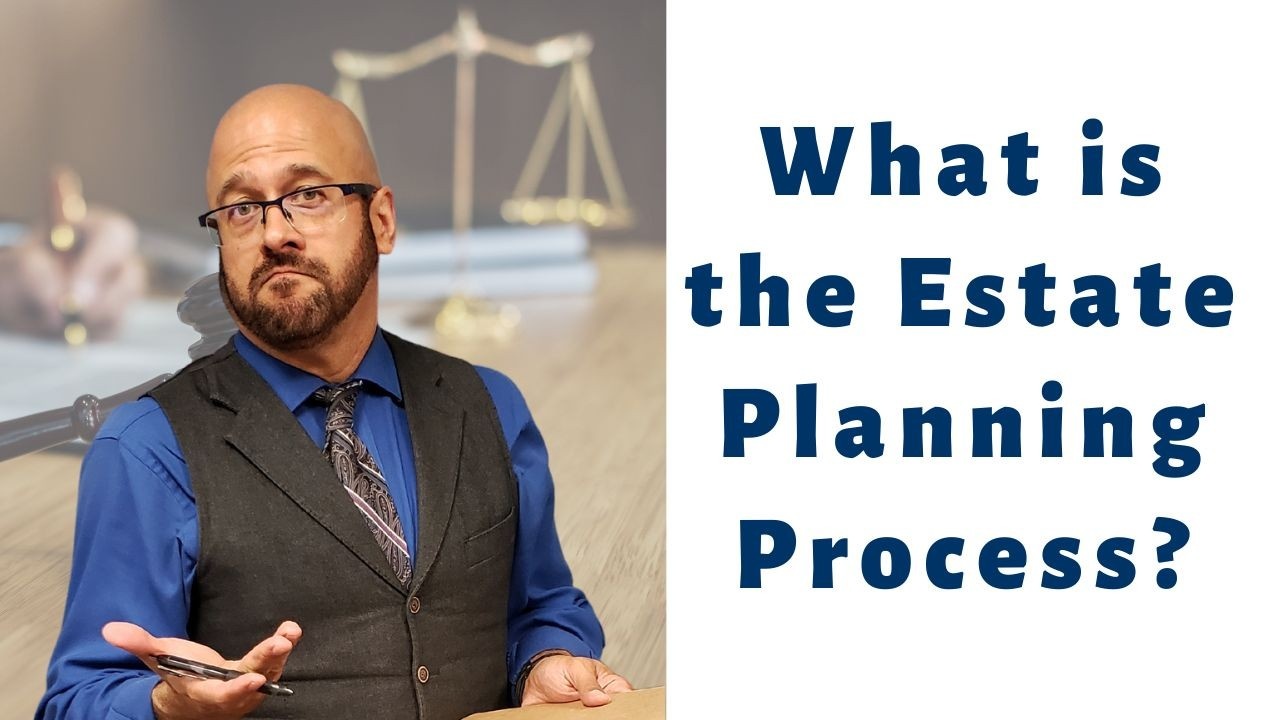What is the Estate Planning Process?
Oct 31, 2022
When people meet with an estate planner for the first time, it is often uncomfortable. After all, they're there to talk about death and where their stuff goes. It's not a subject that most people are eager to address. But it's something that everyone needs to do. So what can the estate planner do to make things easier, more comfortable, and, most of all, efficient? My firm has developed a process that does all of that, and in a way provides the client peace of mind, and, unlike a lot of other planners, understanding their plan and how it works. Here's the process when it comes to revocable living trust-based plans:
* Pre-Appointment: Before even meeting, our clients are sent a questionnaire and a copy of my book Estate Planning Basics that ensures both that our office has basic, essential information, and the client understands the initial concepts surrounding estate planning so the first meeting is talking about their goals and not about the difference between a Will and a Revocable Trust.
* Estate Strategy Session: As the name implies, this first meeting with the estate planner is about actually coming up with a general strategy rather than an "initial consultation." In the session, we review all of the critical choices clients have to make in the process, see if there are any special circumstances that may require additional protection, and outline the rest of the process. We'll then prepare the documents and an Estate Summary, but only send the summary to the clients.
* Estate Summary Meeting: The clients will have received and reviewed the Estate Summary, and from there generate questions and possibly changes. In the meeting, we review these changes and answer questions to make sure we are still on the right track. From there, we make changes to the documents and send the drafts to the clients for review.
* Document Review: This is either a quick meeting, or we take up the full allotted meeting time, because the clients either 1) have pushed through the legalese, basically understood it, and have just a few questions or possibly more changes; or 2) they are really curious about the Generation Skipping Tax and the Texas and Florida Homestead exemptions, and many other provisions, and they wish to understand them before proceeding to the signing. In either case, we make the changes and then schedule the signing. We also provide a more complete Confidential Financial Analysis (if it hasn't already been completed) for the clients to fill out and turn in at the Signing Meeting.
* Signing Meeting: As the name implies, all of the documents relevant to the estate plan are signed, and the Confidential Financial Analysis is turned in. As experience has taught us, even though the Signing Meeting only takes about 20-40 minutes and is just signing documents, our clients seem to be mentally exhausted from the process, so we don't try to tackle anything else because it just "doesn't stick."
* Funding Meeting: Unfortunately, this necessary part of the process is often overlooked by attorneys, and that's making sure that all of the clients' asset titles and beneficiary designations line up with the overall plan. In this particular meeting, we tell a bunch of boring stories of things that happened to other clients where something was left out or forgotten to help poke our clients' memory to make sure we aren't missing anything. From there, we develop a written checklist of recommended transfers and changes to make the overall plan work and send it to the clients.
* Family Review Meeting: Once the Funding Meeting is done, the planning is complete, but it is also a good idea to provide a "briefing" to the important players in the estate plan. This typically includes the first and second trustee and any other people the clients want involved. We review the different types of documents involved, what they are intended to do, and then allow the participants to ask questions. Generally, they won't remember much over the long term about what was discussed, but they will feel a lot more comfortable about things and realize to just get in touch with the right professionals in the event of an emergency.
This process has been very well received by the vast majority of our clients, and it is a way to address estate planning in as comfortable, and thorough, way possible without too much information overload at any one given point. If you know anyone who has been putting off doing their own planning because it is not a comfortable subject for them to address, please send them our way or even just forward this to them. Hopefully, they'll move forward with their own estate planning and receive the same peace of mind many of our clients enjoy.
Stay connected with news and updates!
Join our mailing list to receive the latest news and updates from our team.
Don't worry, your information will not be shared.
We hate SPAM. We will never sell your information, for any reason.
